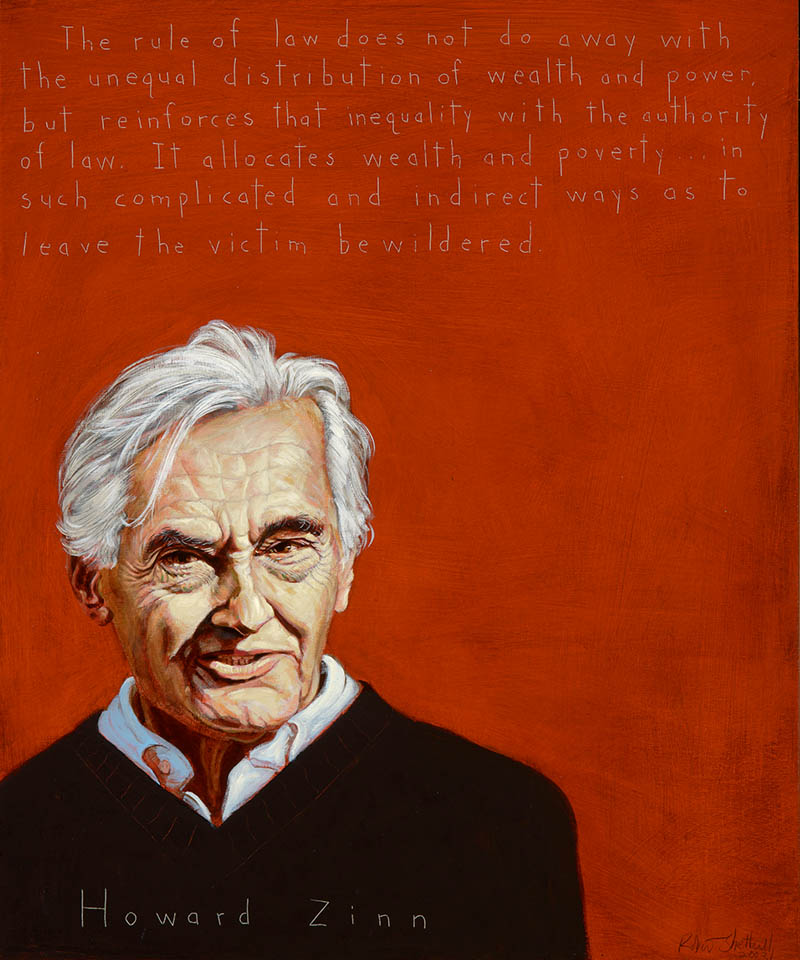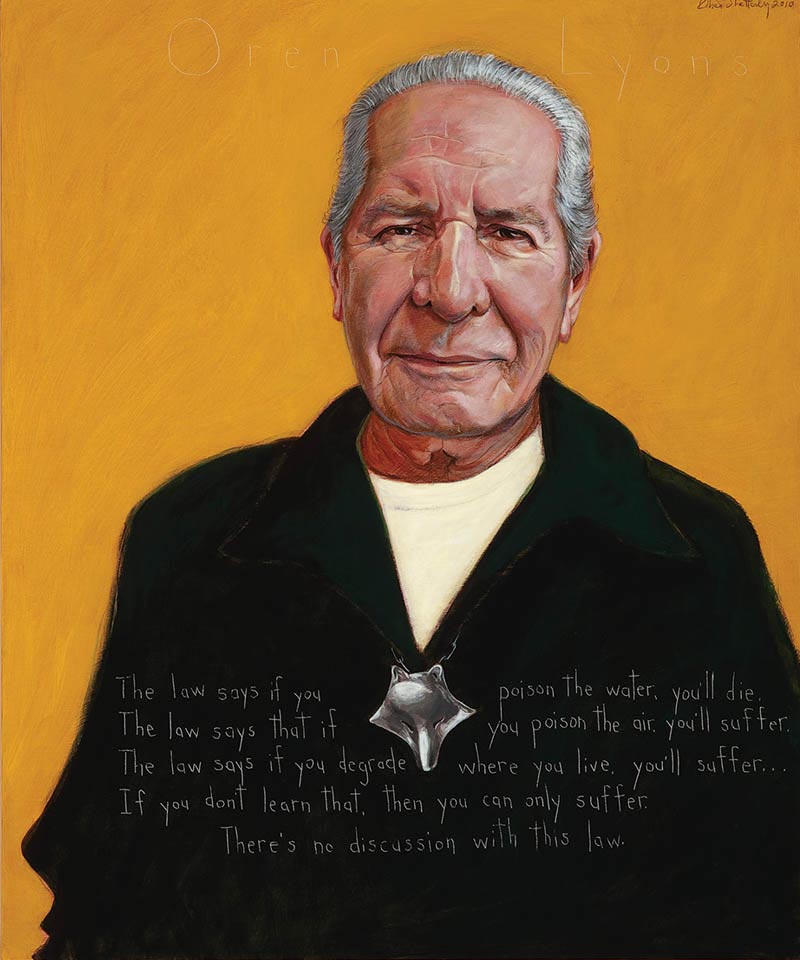What's New
Every Cog and Wheel
“To keep every cog and wheel is the first precaution of intelligent tinkering.” – Aldo Leopold
On reading Jill Lepore’s masterful new history of the United States, These Truths, one cannot overstate the importance of telling a country’s story honestly. For how else – but for all the triumphs, the failures, the ideals, the hypocrisies, the myths and denials – do we know who we really are?
Ms. Lepore insists on telling a true history, which is particularly difficult given the false narrative constantly promoted about our exceptionalism, our glorious and innocent militarism, our constant crowing that we are the greatest country in the world. Lepore charts how closely since the Revolution we’ve lived up to our own founding truths by exploring the persistence of our original sins: racism (slavery, Jim Crow), unregulated capitalism (mass exploitation of workers to build power and fortunes), and purposeful internal propaganda (manipulation of a gullible public to maintain power and wealth). A pattern develops. Nearly every time an opportunity presents itself to create more justice, more equality, more public honesty, it’s squandered either by intention or moral cowardice. How easily democracy can be engineered to become a cruel mockery of itself by leaders who foster prejudice, fundamentalism, and fear.
Ms. Lepore brilliantly shows how correctable problems become woven intractably into the economic and moral fabric of the culture. (Jefferson, Washington & Madison could have freed their slaves; they knew slavery was inconsistent with the founding ideals. The legacy of that failure is immeasurable.) And even when the country submits itself to catastrophic upheaval to align itself with its ideals – the Civil War – the moment of correction is subverted. The telling of this history interests me because the portraits in Americans Who Tell the Truth have taught me many of the same lessons. As Howard Zinn said, “There is no flag large enough to cover the shame of killing innocent people.” Yet we keep making the flag bigger and bigger – to maintain the myth of innocence. Will it ever be possible to live up to our ideals?
I’ve not yet finished These Truths, but one omission bothers me. I think Ms. Lepore should have begun with the truth of nature’s laws. Not to do so is like presenting a play but neglecting to mention that the actors stand on a stage. “These truths” (justice, equality, freedom, pursuit of happiness) posited as a foundational reality are man’s realities, suspended in the air of ideas above the essential stage: nature’s. Ms Lepore shows how these truths about equality and justice become harder and harder to recognize behind the scrim of racial and economic hypocrisy. She lays bare the morally disastrous contradictions of the Constitution with slavery and native genocide. She tugs the thread of this hypocrisy, and we watch our entire historical fabric cringe. But she doesn’t say, “Hey, wait a minute! Don’t you see that more important, more basic, than any political philosophy, more important than any economic ideology of jobs and profits, is asking yourself at whose or what mercy do we live here? On . . . This . . . Amazing . . . Planet! What laws precede human laws?” To say “Nature’s laws” is the only right answer. Only that answer will show us how to live, how to construct all of our institutions. Moral, political, and philosophical coherence must begin with living in harmony with nature’s laws. That’s reality. The lofty, necessary language of the Declaration comes second. It has to stand on the ground.
When considering the history of environmental consciousness in the U.S., certain figures give pause, like stones in a river of exploitation. Indigenous peoples signify the sacred appreciation for the land and the animals. They knew that all species are essential and the precondition of all human activity. That’s what sacred means – that precondition. To embrace the reality of the precondition is a sacred act. As Oren Lyons, Faithkeeper of the Onondaga, says: our deepest spirituality must spring from our deepest reality.
Who was the next stone? Maybe Thoreau? Then John Muir? And after Muir? How quickly, though, the cascading creed of economic expansion gathered speed and power. The stones of reality became harder to see in the turbid water! If one is trying to cross the river by stepping on those stones, is there one between Muir and Rachel Carson?
Perhaps the biggest stone in that gap is Aldo Leopold. His book of essays, A Sand County Almanac, written in the 1940s, foresaw the decimation wrought by the ideology of expansion and profit. He proposed a land ethic to temper the sprawling appetite. Saying that he proposed an ethic does not mean that capitalists or consumers paid the slightest attention. But it does mean that there were always voices of wisdom and sanity, courageous people who tried to stem the torrent by telling truth to economic power. There were always people who worked to identify the reality which frames and sustains our lives. There were people who understood that the ferocious will to conquer nature was more mistaken than heroic. They weren’t merely acting like Cassandra; they were devising alternative plans.
When Leopold said, “To keep every cog and wheel is the first precaution of intelligent tinkering,” he was using the analogy of a mechanic, to warn about human manipulation of the environment. What mechanic needs to be taught one must not throw away a single part? The mechanic intuits the essential purpose of every part even if she can’t explain what that might be.
The fact that relationships in the web of life are far more complicated and various than parts in an engine should impress any would-be nature manipulator to proceed with caution when extracting or introducing species. Evolution takes on that editing responsibility, but with a billion years more experience than we have. Discarding nature’s parts cavalierly has instigated a cascade of extinctions. That’s the difference between intelligent tinkering and idiotic, suicidal tinkering.
When I was a kid – maybe 10 – I was obsessed for a time with the notion that because everything – every molecule of air, every grain of sand, every drop of water – was touching something else, then everything was in constant, perpetual contact with everything else – intimate, titillating contact!. The breath I exhaled in Cincinnati, Ohio was touching, in fact, an elephant’s eye on the Serengeti, Marilyn Monroe’s lips in Hollywood, the topmost branches of a giant sequoia in California. And not just the particular things I could name – everything! All at once! Heady thoughts for a little boy. I was touching them, they were touching me. This was the precursor to oceanic feelings I experienced a few years later listening to symphonies by Tchaikovsky and Beethoven for the first time. That music induced a feeling of spiritual connection; all spirits are touching – the unity of all living things. What had been a universal physical proximity was now metaphysical. The oceanic feeling suggested that I was one with everything.
A few years later such thoughts seemed silly. Not the kind of thing you talk about with your first girlfriend – the idea that everything’s touching everything may sound a tad fresh. And sophomoric. And the oceanic stuff? Over the top.
But now it all makes terrible sense. The touching unity of all things. And so many of those things are disappearing before we know how they touch us, much less what they were. What part of nature’s engine were they? How many cogs and wheels can go missing before unity becomes impossible?
If I were giving high school and college assignments, I would assign Jill Lepore’s These Truths. Every American needs to know about the Trail of Tears. Every American needs to know that the South lost the Civil War but that racism won anyway. I grew up with the slogan that what’s good for General Motors is good for the U.S. Every American needs to know what’s wrong with that claim. Every American needs to know that no war fought by this country since the Second World War has been for a noble cause. Every American needs to know the names of the courageous people who have struggled to set the record right. But every person on the planet also needs to know that none of this history matters if we don’t honor the laws of the planet we live on.

